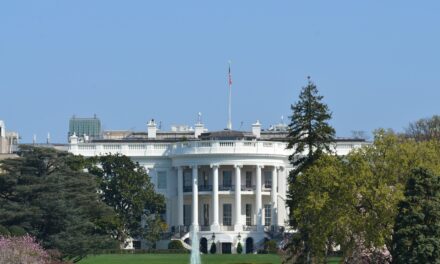President Joe Biden’s proposal to increase capital gains tax will most likely exclude about 75% of stock investors. According to UBS, this is due to the types of accounts they hold.
Biden is poised to tax corporations and wealthy people to increase funding for infrastructure and economic programs. A significant part of this proposal is increasing the top federal capital gains tax. Everyone making more than $1 million a year will be taxed from the present 20% to 39.6%.
Marked safe from capital gains tax hike
As stated in the UBS research, the policy will not cover 75% of US stock investors with accounts not subject to capital tax gains.
Retirement accounts such as workplace retirement plans like 401(k) plans and individual retirement accounts and IRAs are included in the exclusion.
In principle, tax is not applied to the gains earned within the account. Associate professor Richard Winchester of Seton Hall Law School reiterated this concept.
Those who invested in traditional and pretax accounts will pay income tax upon withdrawal. With Roth accounts, investors pay taxes straightforward. The earnings they gain over time has no taxes.
Likewise, endowments and foreign investors also don’t owe capital gains tax. Tax-exempt organizations like colleges and universities commonly hold endowments. Non-US citizens pay taxes on investment earnings.
A Millionaire’s Club Limited?
The capital gains tax is owed from profits accumulated from investments like stock or cryptocurrency.
The fluidity of investment gains delays the effect of the capital gains tax, which means, by technicality, a person owes the tax once the stock sale is fixed. If the gains are sitting within the account, the capital gains tax has no influence.
The concept is the same for the 75% of investors not subjected to Biden’s capital gains tax hike proposal. However, the key difference between those who are not affected by this raise and those targeted is income.
The policy is aiming at taxpayers who earn above $1 million annually. Biden proposes to let millionaires pay the same tax on long-term capital gains, almost like ordinary income or wages.
Factoring the surtax, it is projected that the 39.6% rate will turn to 43.4% capital gains tax.
According to the most recent data from IRS, roughly 540,000 taxpayers reported higher incomes in 2018.
They constitute 0.3% of the 154 million Americans whole filed a tax return in that same year. In terms of stock investment, the wealthiest households have a collective $1 trillion to $1.5 trillion gains. Tax will be applicable upon selling.
Congress support needed
The proposal, included in American Families Plan, is subject to congressional approval.
Insiders expect that the policy will go through long hours of deliberation, considering the strong opposition of Republicans against the tax hike.
Several Democrats have also expressed resistance against the proposal. Some experts predict that the capital gains tax rate will be adjusted into a lower value as a compromise.














